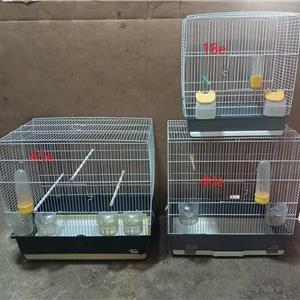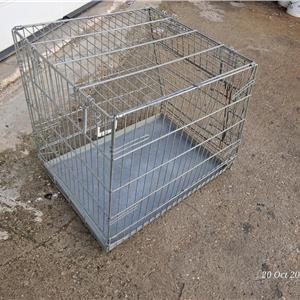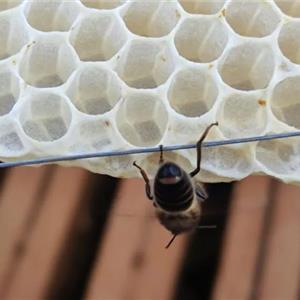Introduction to Beekeeping and Conservation of the Maltese Honey Bee
€ 175
Description
Title: Introduction to Beekeeping and Conservation of the Maltese Honey Bee
Duration: 10 sessions × 2 hours each (Total: 20 hours)
Fee: €175
Venue: To be Announced Later
Period: To be Announced Later (Autumn 2025)
Time: To be Announced Later
What’s Included:
Certificate of Attendance (issued to participants who attend at least 80% of the sessions)
Direct access to Custodians of the National Insect scheme as Guardian of the National Insect (beekeeper)
Opportunities to join schemes offered by the Foundation.
Group Size:
Minimum: 4 participants
Maximum: 15 participants
Intended For:
This course is ideal for beekeepers (both experienced and aspiring), conservationists, educators, and nature enthusiasts who wish to support Malta’s native biodiversity. It also welcomes farmers, gardeners, and citizen scientists interested in pollinator-friendly practices and anyone passionate about becoming a Guardian of the National Insect by helping to protect and keep the endemic Apis mellifera ruttneri.
Course Overview
This comprehensive course is designed to equip participants with the knowledge, skills, and commitment required to become Guardians of the National Insect (beekeepers in Malta who keep and protect the Apis mellifera ruttneri, the endemic Maltese Honey Bee and Malta’s officially recognised National Insect).
It provides aspiring beekeepers, educators, and nature enthusiasts with a strong foundation in Maltese beekeeping practices, underpinned by a deep commitment to conservation and sustainability. Centred on the unique Apis mellifera ruttneri, the course blends practical instruction with ecological awareness, reflecting Malta’s national efforts to safeguard its native pollinators and biodiversity.
Across ten structured lessons, participants will explore the biology and behaviour of honey bees, the specific needs and traits of the Maltese subspecies, and the essential tools and techniques for responsible hive management. The course also covers the legal and ethical dimensions of beekeeping in Malta, as well as the major environmental threats facing bees today, such as hybridisation, pesticides, and climate change.
Hands-on sessions and an observational visit to a working apiary offer direct experience in hive handling, disease recognition, and sustainable honey harvesting. Participants will also learn how to implement pollinator-friendly practices, contribute to citizen science projects, and engage in broader conservation efforts that support the long-term survival of Malta’s native bee population.
By the end of the course, learners will not only be prepared to establish and maintain bee colonies responsibly, but will also join a growing community of committed individuals actively working to preserve the Maltese Honey Bee and its vital role in our ecosystem.
Target Audience
Adults with an interest in beekeeping, agriculture, biodiversity, or environmental conservation.
Beginners or early intermediate beekeepers.
Learning Outcomes
By the end of the course, participants will:
Understand the biology and behaviour of Maltese Honey Bee.
Learn practical skills for managing hives and rearing bees responsibly.
Appreciate the importance of the Maltese Honey Bee and how to help conserve it.
Be able to identify threats to bee health and apply sustainable practices.
Visit and safely interact with active beehives in an apiary.
Lesson Plan (2 hours each)
Lesson 1: Introduction to Beekeeping in Malta
Historical overview of beekeeping in the Maltese Islands.
Introduction to the Maltese Honey Bee (Apis mellifera ruttneri): characteristics and importance.
Overview of basic beekeeping equipment and terminology.
Legal framework and regulations relevant to beekeeping in Malta.
Lesson 2: Understanding the Maltese Honey Bee
Anatomy of the honey bee and roles within the hive: queen, drones, and workers.
Bee behaviour and methods of communication (e.g., the waggle dance).
The life cycle and reproductive biology of bees.
Unique traits and adaptations of the Maltese Honey Bee subspecies.
Lesson 3: Conservation of the Maltese Honey Bee
The ecological value of conserving native pollinators.
Key threats: hybridisation, pesticide use, habitat loss, and climate change.
Overview of the National Insect initiative and related legal protections.
The beekeeper’s role in safeguarding biodiversity.
The role of designated custodians of the National Insect.
An introduction to genetic testing and its role in subspecies verification.
Lesson 4: Equipment and Hive Management
Common hive types used in Malta and their features.
Essential tools and protective gear for safe beekeeping.
Establishing an apiary: site selection, layout planning, and preparation.
Seasonal hive management practices in the Maltese climate.
Lesson 5: Starting and Maintaining a Maltese Honey Bee Colony
Sourcing bees: catching swarms, making splits, and acquiring nucleus colonies (nucs).
Introducing and monitoring queens; assessing colony strength.
Supplementary feeding: when and how to provide nutrition support.
Lesson 6: Hive Handling and Maintenance
Practical use of hive tools and the smoker.
Safe frame handling and the importance of record-keeping.
Managing comb, hive space, and honey supers.
Practical sanitation and disease prevention measures.
Lesson 7: Apiary Visit – Practical Observation
Guided visit to a functioning apiary.
Live demonstration of a hive inspection.
Identifying brood, pollen, honey stores, and signs of colony health or distress.
Hands-on practice with tools under supervision.
Emphasis on safety, respect for bees, and ethical handling.
Lesson 8: Bee Health and Disease Management
Identifying symptoms of common bee diseases (e.g., Varroa mite, foulbrood).
Integrated Pest Management (IPM) strategies.
Approved treatment methods and hygiene protocols in Malta.
Accessing veterinary support and understanding registration requirements.
Lesson 9: Honey Harvesting and Sustainable Practices
Identifying the right time and method for honey bee products’ harvesting.
Types of honey and how they vary with flora and season.
Processing, filtering, and safe storage techniques.
Labelling requirements, local markets, and developing value-added products.
Ethical and sustainable approaches to honey production and hive management.
Lesson 10: Conservation in Practice
Creating pollinator-friendly environments: support the planting of indigenous species and avoiding harmful chemicals.
The role of green corridors and native flora in supporting biodiversity.
Developing a conservation action plan as a beekeeper.
Participation in citizen science and pollinator monitoring programmes.
Building connections with local and national conservation initiatives.
Duration: 10 sessions × 2 hours each (Total: 20 hours)
Fee: €175
Venue: To be Announced Later
Period: To be Announced Later (Autumn 2025)
Time: To be Announced Later
What’s Included:
Certificate of Attendance (issued to participants who attend at least 80% of the sessions)
Direct access to Custodians of the National Insect scheme as Guardian of the National Insect (beekeeper)
Opportunities to join schemes offered by the Foundation.
Group Size:
Minimum: 4 participants
Maximum: 15 participants
Intended For:
This course is ideal for beekeepers (both experienced and aspiring), conservationists, educators, and nature enthusiasts who wish to support Malta’s native biodiversity. It also welcomes farmers, gardeners, and citizen scientists interested in pollinator-friendly practices and anyone passionate about becoming a Guardian of the National Insect by helping to protect and keep the endemic Apis mellifera ruttneri.
Course Overview
This comprehensive course is designed to equip participants with the knowledge, skills, and commitment required to become Guardians of the National Insect (beekeepers in Malta who keep and protect the Apis mellifera ruttneri, the endemic Maltese Honey Bee and Malta’s officially recognised National Insect).
It provides aspiring beekeepers, educators, and nature enthusiasts with a strong foundation in Maltese beekeeping practices, underpinned by a deep commitment to conservation and sustainability. Centred on the unique Apis mellifera ruttneri, the course blends practical instruction with ecological awareness, reflecting Malta’s national efforts to safeguard its native pollinators and biodiversity.
Across ten structured lessons, participants will explore the biology and behaviour of honey bees, the specific needs and traits of the Maltese subspecies, and the essential tools and techniques for responsible hive management. The course also covers the legal and ethical dimensions of beekeeping in Malta, as well as the major environmental threats facing bees today, such as hybridisation, pesticides, and climate change.
Hands-on sessions and an observational visit to a working apiary offer direct experience in hive handling, disease recognition, and sustainable honey harvesting. Participants will also learn how to implement pollinator-friendly practices, contribute to citizen science projects, and engage in broader conservation efforts that support the long-term survival of Malta’s native bee population.
By the end of the course, learners will not only be prepared to establish and maintain bee colonies responsibly, but will also join a growing community of committed individuals actively working to preserve the Maltese Honey Bee and its vital role in our ecosystem.
Target Audience
Adults with an interest in beekeeping, agriculture, biodiversity, or environmental conservation.
Beginners or early intermediate beekeepers.
Learning Outcomes
By the end of the course, participants will:
Understand the biology and behaviour of Maltese Honey Bee.
Learn practical skills for managing hives and rearing bees responsibly.
Appreciate the importance of the Maltese Honey Bee and how to help conserve it.
Be able to identify threats to bee health and apply sustainable practices.
Visit and safely interact with active beehives in an apiary.
Lesson Plan (2 hours each)
Lesson 1: Introduction to Beekeeping in Malta
Historical overview of beekeeping in the Maltese Islands.
Introduction to the Maltese Honey Bee (Apis mellifera ruttneri): characteristics and importance.
Overview of basic beekeeping equipment and terminology.
Legal framework and regulations relevant to beekeeping in Malta.
Lesson 2: Understanding the Maltese Honey Bee
Anatomy of the honey bee and roles within the hive: queen, drones, and workers.
Bee behaviour and methods of communication (e.g., the waggle dance).
The life cycle and reproductive biology of bees.
Unique traits and adaptations of the Maltese Honey Bee subspecies.
Lesson 3: Conservation of the Maltese Honey Bee
The ecological value of conserving native pollinators.
Key threats: hybridisation, pesticide use, habitat loss, and climate change.
Overview of the National Insect initiative and related legal protections.
The beekeeper’s role in safeguarding biodiversity.
The role of designated custodians of the National Insect.
An introduction to genetic testing and its role in subspecies verification.
Lesson 4: Equipment and Hive Management
Common hive types used in Malta and their features.
Essential tools and protective gear for safe beekeeping.
Establishing an apiary: site selection, layout planning, and preparation.
Seasonal hive management practices in the Maltese climate.
Lesson 5: Starting and Maintaining a Maltese Honey Bee Colony
Sourcing bees: catching swarms, making splits, and acquiring nucleus colonies (nucs).
Introducing and monitoring queens; assessing colony strength.
Supplementary feeding: when and how to provide nutrition support.
Lesson 6: Hive Handling and Maintenance
Practical use of hive tools and the smoker.
Safe frame handling and the importance of record-keeping.
Managing comb, hive space, and honey supers.
Practical sanitation and disease prevention measures.
Lesson 7: Apiary Visit – Practical Observation
Guided visit to a functioning apiary.
Live demonstration of a hive inspection.
Identifying brood, pollen, honey stores, and signs of colony health or distress.
Hands-on practice with tools under supervision.
Emphasis on safety, respect for bees, and ethical handling.
Lesson 8: Bee Health and Disease Management
Identifying symptoms of common bee diseases (e.g., Varroa mite, foulbrood).
Integrated Pest Management (IPM) strategies.
Approved treatment methods and hygiene protocols in Malta.
Accessing veterinary support and understanding registration requirements.
Lesson 9: Honey Harvesting and Sustainable Practices
Identifying the right time and method for honey bee products’ harvesting.
Types of honey and how they vary with flora and season.
Processing, filtering, and safe storage techniques.
Labelling requirements, local markets, and developing value-added products.
Ethical and sustainable approaches to honey production and hive management.
Lesson 10: Conservation in Practice
Creating pollinator-friendly environments: support the planting of indigenous species and avoiding harmful chemicals.
The role of green corridors and native flora in supporting biodiversity.
Developing a conservation action plan as a beekeeper.
Participation in citizen science and pollinator monitoring programmes.
Building connections with local and national conservation initiatives.
Item Details
9956539
202
Pet Supplies
11/08/2025









